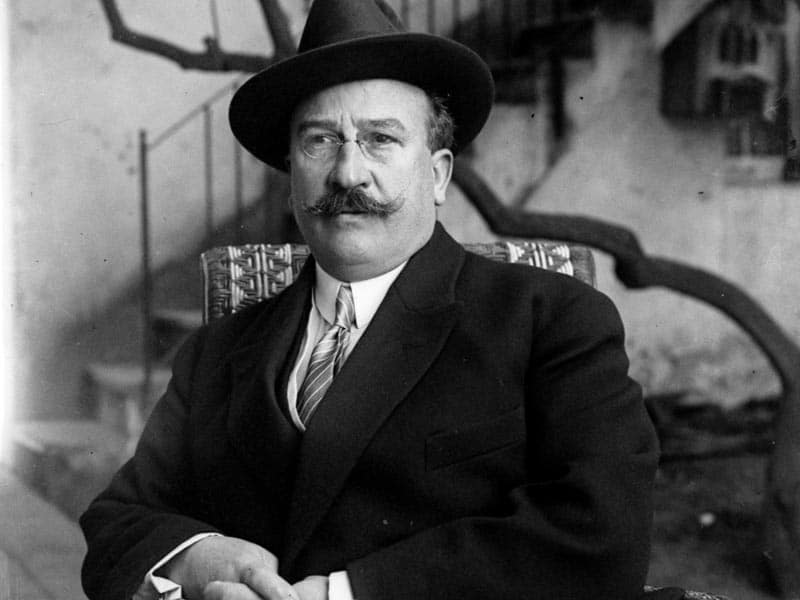Alejandro Lerroux
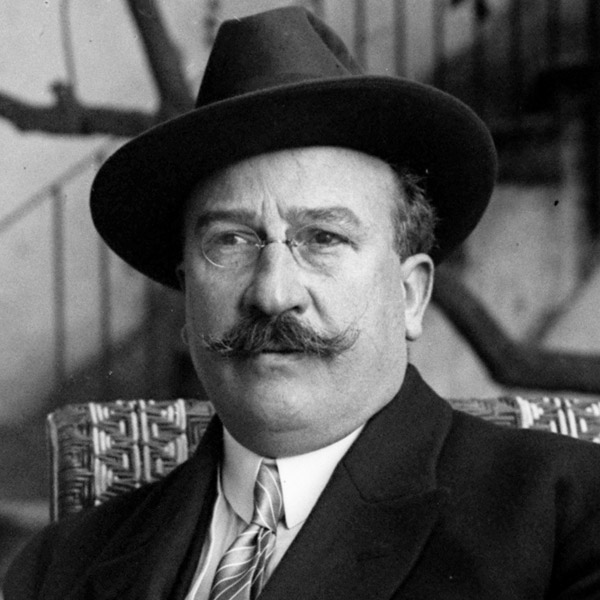
Name:
Alejandro Lerroux García
Role:
Prime Minister of Spain
Born:
1864, Córdoba, Spain
Died:
1949, Madrid, Spain
Affiliation:
Workers movement, anti-Catalanism, right wing
Ramon Alberch talks about Alejandro Lerroux, and his Radical Republican Party. The Radical Republican Party, that’s the other side. Completely different. Their leader, a very odd man from, if I’m emembering correctly, Andalusia, Alejandro Lerroux. The “Partit Republicà Radical” is responsible for an expression that exists to this day in Catalonia, A somewhat insulting denomination, referring to someone as a Lerrouxist. Why? The ‘Partit Republicà Radical’ was Spanish nationalist, anti-dynastic, with a touch of violence and anti-clericalism. All mixed mixed in with the demagoguery of a silver-tongued politician. Not so different from some politicians today. People lacking substance, but possessing great oratorial skills. He has memorable quotes, and was called the emperor of the Paral·lel, because Paral·lel Avenue, back then, was the home to cabarets, bars… A desolate place where the underworld converged. At the time, it was his sphere of influence. Among his well-known quotes, which he said during a meeting, “Go into the convents, lift the veils of the novices, and make them mothers.” That was incendiary to the utmost. But he has tremendous power. Why so much power? Because the working class is becoming non-Catalan, not in a pejorative sense, but through precedent. It’s a working class that comes from Andalucia, Murcia, for the Universal Exposition of 1888. They have come to the city for work. In 1908, the Radical Republican Party is founded. Seven years after the Lliga, the Regionalist League. Two years after the famous Solidaritat Catalan [Catalan Solidarity], a coalition of Catalan parties opposed to the Madrid government. Lerroux, at that moment, has a very loyal following. He speaks to them in Spanish because it’s the language of the immigrants. With that, he creates much division between those who are and aren’t Catalan. This is where the expression Lerrouxism originates. When someone creates a movement in Catalunya, like the Andalusian Socialist Party in the 1980s, they’re called Lerrouxist if they divide people based on place of origin. These are Catalans. These aren’t. He leverages that to great effect, and identifies a proletariat that sees Catalan and Catalanism as bourgeois, separate from them. To not be Catalan or a Catalanist is to be a worker. This simplification helps build support, but he meets opposition in the CNT. The CNT presents a real challenge, but regardless, in Barcelona city hall, from 1914 to 1915, and 1917 and 1920, they exert great influence, which is ultimately forfeited because of underhanded business dealings, unclear economic initiatives, and cronyism. But even so, up until the Republic, 1933 to 1935, the Radical Republican Party manages to rule for a time. With lots of party splits…But with the rise of the Republic, the arrival of the war, it becomes nearly extinct owing to the formation of different factions backed by strong leadership and diffuse ideologies backed by demagoguery. But it’s a party that, during the first-third of the 20th century, especially in Catalunya, has great strength, and presents clear opposition to the Lliga. So it must be understood that these are the two big parties of that time.
Alfred Pérez Bastardas discusses Alejandro Lerroux and Lerrouxism.Lerrrouxism is a socio-political movement that runs through all of Spain, not just Catalunya. Its initial actions took place at the start of the 20th century. Lerroux is a difficult character to define. Fighting political Catalanism in Catalunya, which is a broad-based movement going back more than 150 years. They were trying to convince people that Catalanism was a right-wing political movement. So, a reactionary movement against the Regionalist League of Francesc Cambó, previously Prat de la Riba, etc. Second, it rallied around the idea that Catalanism could not offer solutions for labor. At this time, of course, Lerroux had influence within the Spanish government. He had a grant from the state. And he inserted himself in the middle of the Catalan labor struggle. And he won on it, over and over again. Lerrouxists subsidized those elections, buying the vote. But it wasn’t just that. The Catalan labor movement had a difficult time seeing that Lerrouxism was linked to the reactionary Spanish center. It wasn’t a political effort undertaken in the interest of laborers in Catalonia. This is owing to its problems with Catalanism, so it never really did anything.
Ramon Alberch talks about Alejandro Lerroux, and his similarities to today’s politicos. Lerroux played a very important role. The Lerrouixst movement…you’ll find Lerrouxism in dictionaries and textbooks. Lerroux is of non-Catalan origins who enters politics in Catalunya, He’s eloquent, and manages to attract an important segment of the working class to his party. His platform is overtly anti-Catalanist. He sees the subjects of the Catalan language and culture as a preoccupation of the ruling class, the bourgeoisie and the middle class, and Spanish as the language of the working class. So, in that sense, Lerroux, and those in his orbit, youths, mostly, believe that the fight against the bourgeoisie must be confrontational. There’s a long stretch of time, from around 1920 to 1925, before the Primo de Rivera dictatorship, when Lerrouxism experiences great growth, and later it will even exert great influence in Madrid, after his agenda changes somewhat. He was a man who maneuvered well among the populous. They called him the emperor of Paral·lel, which, back then, was the location of proletariat bars and theaters. It was a bastion for the most radical people, and those running in those circles. He represented a segment of society that hadn’t adapted to Catalunya, that didn’t understand how things worked here, and who believed his systemic opposition to the bougeoisie, was the way to resolve conflict. Over time, Lerroux will end up aligning with more right-wing people, and becoming more right-wing. Because I think he’s got a problem, similar to today’s Ciudadanos. Despite the similarities, there is an inherent anti-Catalanism, and what brought them together might be different, but deep down there’s an unwillingness to adapt to a country’s state of being. Deep down, there’s simply no interest in showing respect.
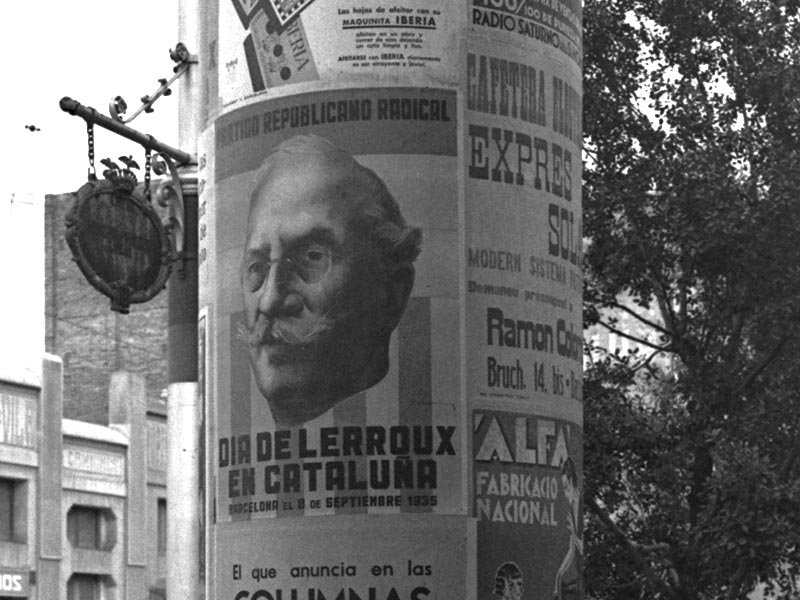
1935 – Radical Republican Party posters announcing Lerroux Day in Barcelona.
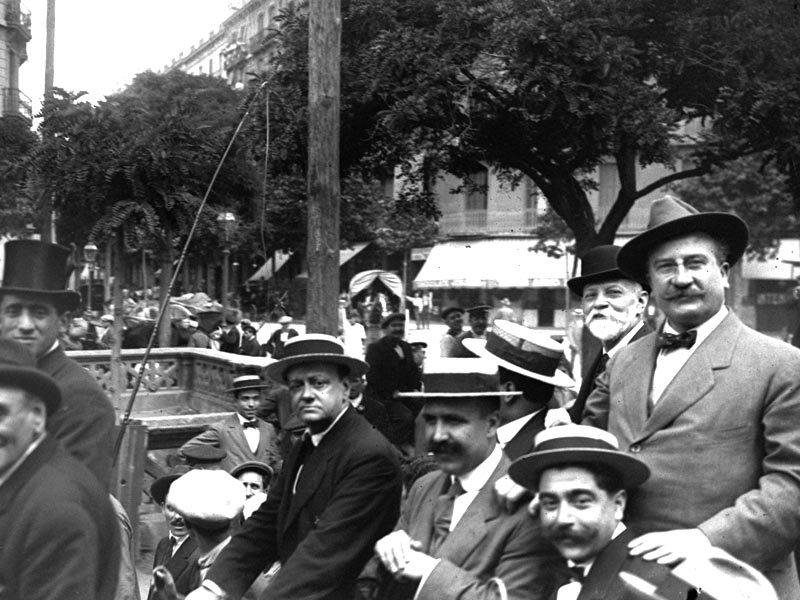
1920 – Alejandro Lerroux, head of the Radical Republican Party, arrives in Barcelona
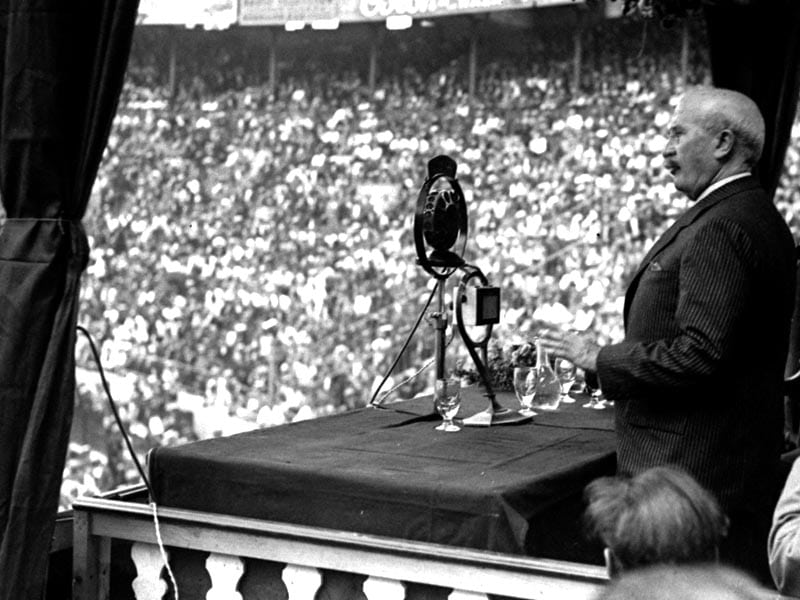
1931 – Alejandro Lerroux speaking the Monumental bullring in Barcelona.
